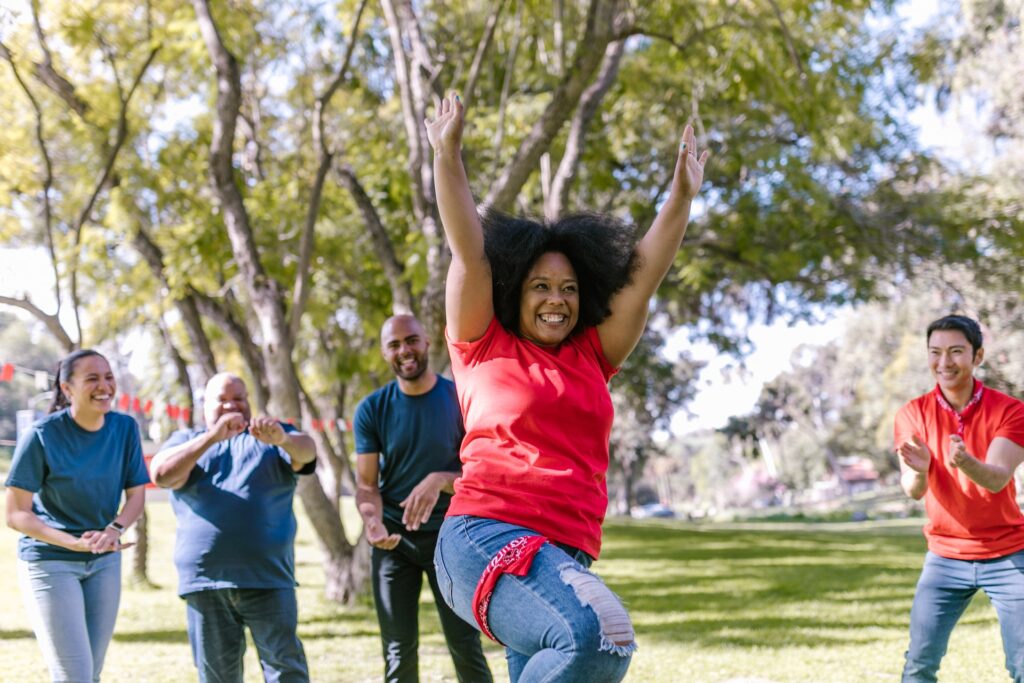Depression and anxiety are the most common mental health problems in older adults. Untreated, they can affect physical health and lead to isolation.
Seniors can aid their own mental health by making simple lifestyle changes. For example, a diet rich in fiber and lean proteins helps prevent depression, while regular exercise promotes both physical and emotional well-being.
1. Exercise
Exercising daily can help keep mental processes, like thinking and learning, sharp. It can also slow down brain-related declines that occur with age. Try a walking routine, chair stretches, or senior fitness classes such as SilverSneakers.
Loneliness and isolation can have a negative impact on an elder’s mental health. Reach out and connect with loved ones regularly through a phone call, video chat, or email.
A lack of social interaction can cause an elder to start distancing themselves from community activities, events, and family members. This can lead to depression, anxiety, or even memory loss. It is important to monitor a senior’s mood and if there are any signs of worsening mental health conditions, seek professional assistance. This may include a psychiatrist or psychologist.

2. Creative Pursuits
Creative pursuits like writing, painting, and crafting have a lot of benefits for elders. They have been proven to reduce stress and anxiety, and can even improve feelings of self-worth and happiness.
In addition to the positive emotional benefits, artistic activities have also been shown to stimulate the brain, which is especially important as aging occurs. One study found that seniors who participate in art, music, and dance programs experience lower rates of depression than those who don’t engage in these creative pursuits.
Creativity doesn’t always have to be traditional art, and it can include anything from gardening and painting to taking photographs or cooking. Many senior living communities, including Hickory Villa, offer creative opportunities for residents to enjoy with friends and family. They can also enjoy these activities on their own and benefit from the health effects.
3. Volunteering
Many seniors find that regular volunteering gets them out of the house and into their community where people rely on them for services and support. This gives them a sense of purpose and responsibility while encouraging social engagement and friendships.
Whether it’s walking dogs at the Humane Society or restocking books at the library, volunteer activities can keep seniors active and physically healthy. It also helps them maintain a more positive self-esteem, and lower their risk for depression and anxiety.
Plus, volunteers help others lower their risk of dementia and Alzheimer’s. Providing them with new challenges and stimulating social interaction keeps their brain sharp. They also learn new skills and experiences. This is a win-win-win situation for everyone involved! It can even help prevent the risk of falls.
4. Games & Puzzles
Whether working on a puzzle, playing a game, or solving a riddle, games, and puzzles stimulate cognitive function. They can also help to improve attention span and memory, as well as enhance language skills. Moreover, these activities encourage logical thinking and problem-solving, as the person will have to decide how a piece fits or use trial and error when working on a word search.
Jigsaw puzzles are ideal as they engage both sides of the brain, stimulating the analytical and creative sides simultaneously. Likewise, word searches or crosswords work to hone focus and attention to detail, while chess engages logic, planning, and strategizing. Similarly, playing board games can encourage social interaction and build friendships. This can be especially beneficial if the elderly person lives alone.

5. Socializing
Loneliness is one of the biggest mental health issues seniors face. It can have serious consequences, especially when coupled with depression or a poor diet. Loneliness may lead to apathy, low energy levels, weight loss or gain, insomnia, and other sleep-related issues, reduced movement, and erratic behavior.
Elders can combat loneliness by participating in social activities. These can be as simple as visiting friends and family, or as complex as reminiscence groups, class sessions, group exercises, and singing groups.
Studies have shown that socialization keeps the brain sharp and even improves episodic memory. This can help slow dementia in its earliest stages, and reduce the risk of depression and anxiety. Seniors living alone can find many opportunities for socialization at their local senior community or home healthcare provider.










































Discussion about this post